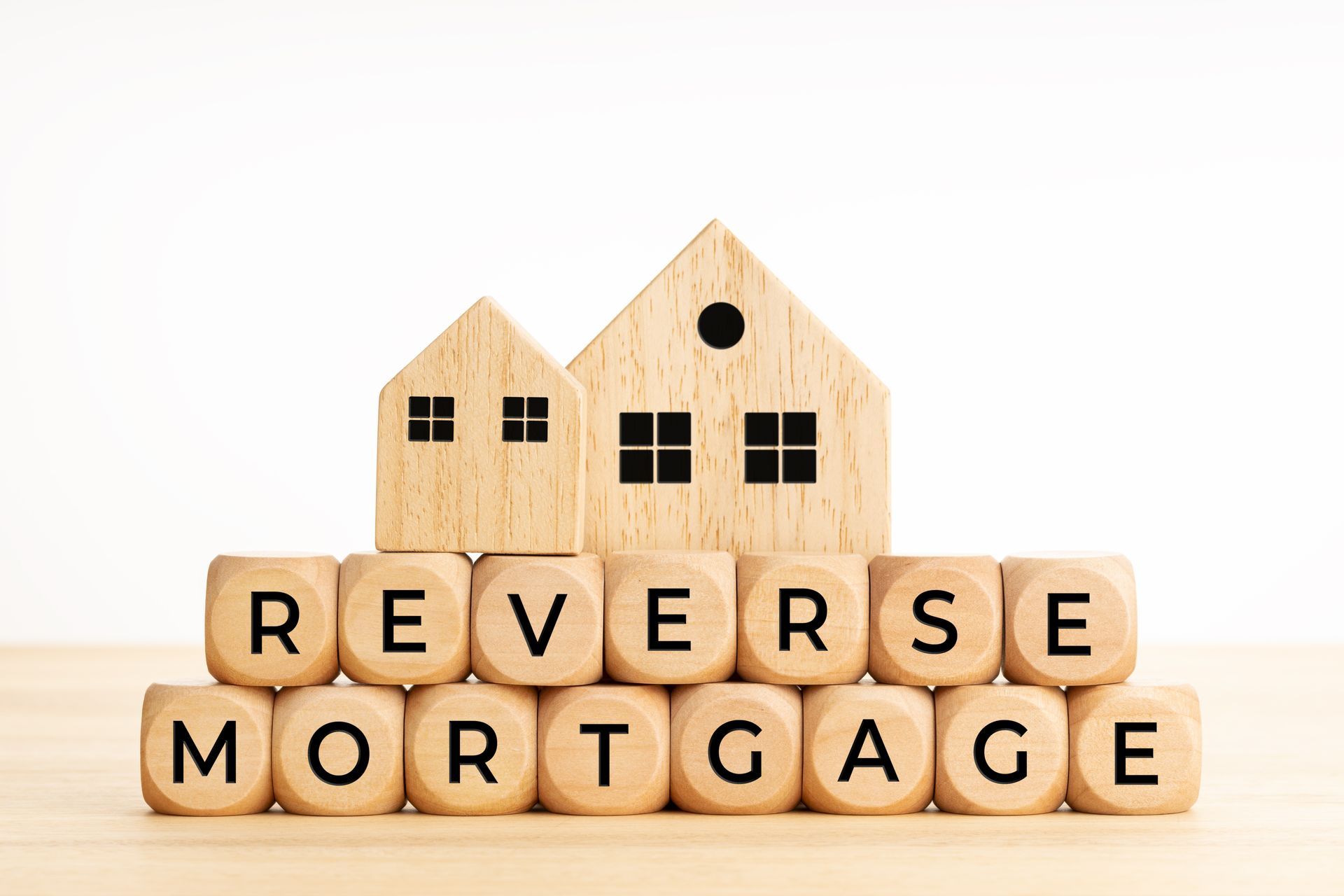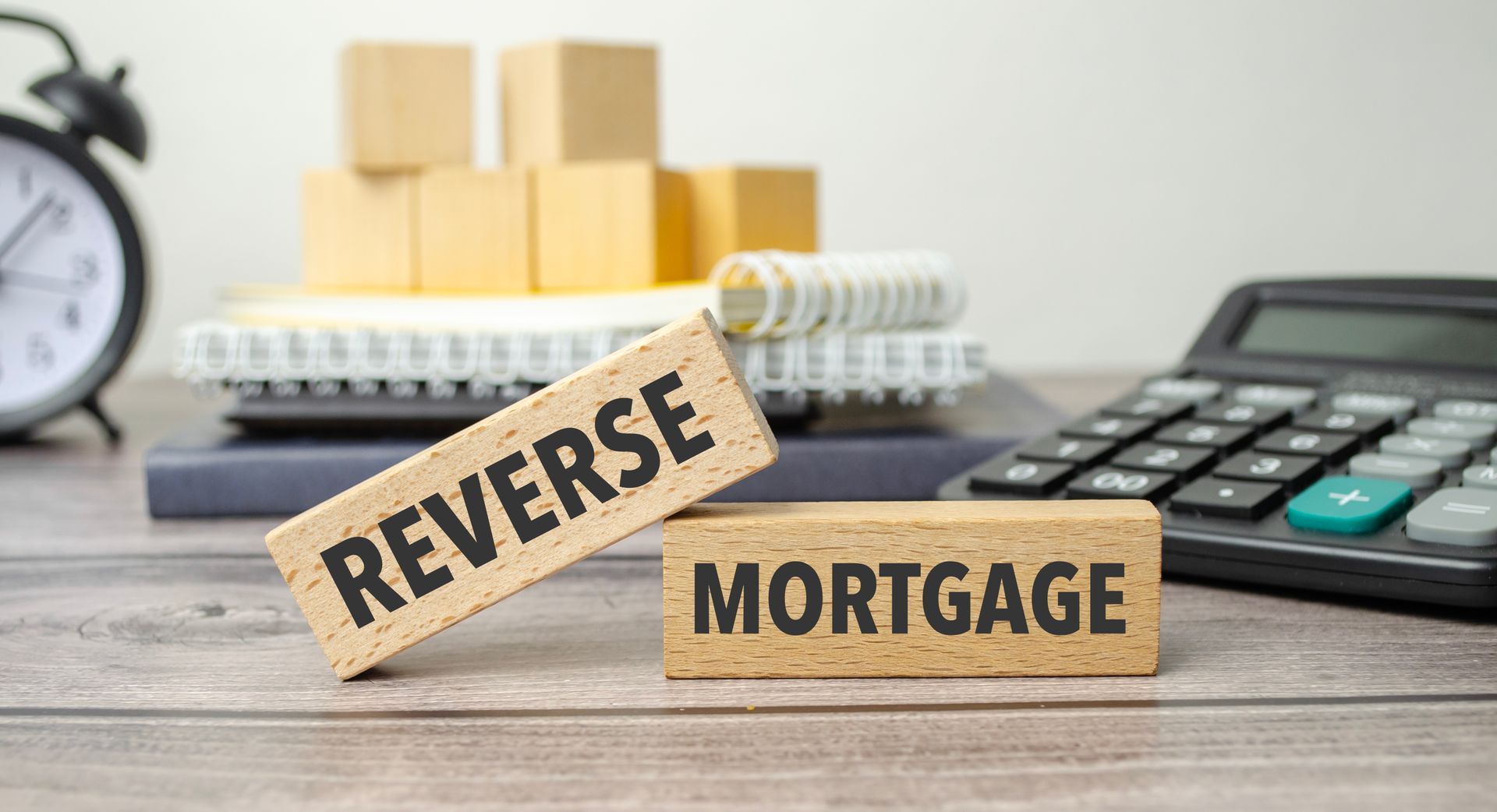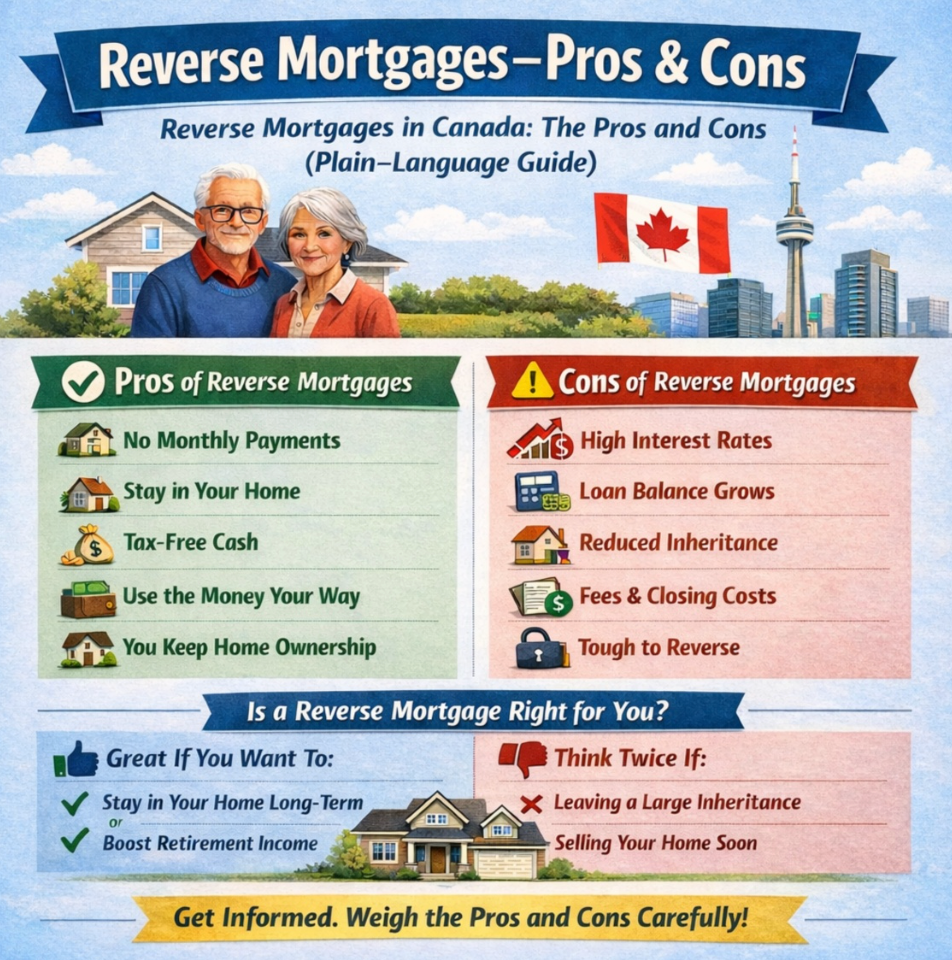Reverse Mortgages For Home Owners 55+

As Canadian homeowners age, many are finding that their home represents a significant portion of their net worth.
A Canadian reverse mortgage is a financial product that can allow homeowners who are 55 years or older to access the equity in their homes without having to sell or move out. Reverse mortgages can be somewhat controversial – there are both supporters and opponents of this mortgage product. You need to discuss with your Mortgage Broker about the risks and benefits. More than 50% of Canadians worry about outliving their retirement savings. These loans are designed for Canadian retirees, which allow homeowners to tap into their home equity as a source of income, especially as interest rates and inflation have soared over the past year.
In my article, we’ll explore the benefits of reverse mortgages in more detail.
1. Supplement Retirement Income
A Canadian reverse mortgage can be a valuable tool for seniors who want to supplement their retirement income. Rather than selling their home and downsizing, seniors can stay in their homes and access the equity they’ve built up over time.
- This can provide them with the funds they need to cover living expenses or pay for healthcare costs.
2. Pay for Home Improvements
Another benefit of a reverse mortgage is that it can be used to make home improvements. As homeowners age, they may need to make modifications to their homes to make them more accessible or to accommodate changing needs.
- A reverse mortgage can provide the funds needed to make these changes, allowing seniors to stay in their homes for longer.
3. No Monthly Mortgage Payments
With a reverse mortgage, homeowners are not required to make monthly mortgage payments. Instead, the interest on the loan accrues and is added to the balance of the loan.
- This can be helpful for seniors who may have limited income and want to avoid the burden of monthly payments.
4. Flexible Payment Options
Reverse mortgages offer flexible payment options, allowing homeowners to choose how they want to receive the funds.
- Homeowners can receive a lump sum payment, regular monthly payments, or set up a line of credit.
- This can allow seniors to customize their reverse mortgage to meet their specific needs.
5. No Impact on Government Benefits
A reverse mortgage does not impact government benefits such as Old Age Security & Canadian Pension Plan.
- This means that seniors can still receive these benefits while accessing the equity in their homes.
6. No Risk of Negative Equity
Reverse mortgages are designed so that homeowners can never owe more than the value of their home.
- This means that there is no risk of negative equity, which can provide peace of mind for seniors and their families.
7. Stay in Your Home
One of the most significant benefits of a reverse mortgage is that it allows homeowners to stay in their homes.
- This can be especially important for seniors who have lived in their homes for many years and have a strong emotional attachment to their homes.

In conclusion, a Canadian reverse mortgage can be a valuable tool for seniors who have limited income and want to access the equity in their homes without having to sell or move out.
By providing a flexible source of funds, a reverse mortgage can help seniors supplement their retirement income, pay for home improvements, and stay in their homes for longer.
Before deciding on a reverse mortgage, it is important to carefully consider the costs and benefits. Let’s have a chat about your situation!






